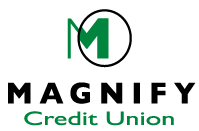Polk Learns Lessons During Financial Literacy Month
WINTER HAVEN — A current monthlong initiative is designed to combat the notion that many Americans’ eyes glaze over when they hear financial terms such as “risk diversification” and “interest compounding.”

Originally posted on theledger.com
April is Financial Literacy Month in the United States, and several Polk organizations have committed to helping the uninitiated understand how money works.
Banzai, a financial literacy software program, has developed a curriculum utilized by more than 20,000 teachers in the U.S. Banks and credit unions throughout the country pay for the materials teachers use in their classrooms, according to Banzai spokeswoman Rachel Yentes.
Magnify Credit Union — which operates branches in Lakeland, Bartow, Winter Haven, and Mulberry — sponsors Banzai locally.
Danielle Painter, who teaches business at Westwood Middle School in Winter Haven, said the program is effective because it presents students with relatable scenarios.
“It gives the kids real-life experiences,” said Painter, who has used the program two Aprils in a row. The teachers administer a Banzai lesson plan followed by a simulation that asks the students to make various financial decisions. Their goal is to save $2,000 for college. “So if they want to go to prom, it forces them to save up enough money.”
Painter said even the most basic financial lessons have proven valuable.
“It addresses what a paycheck is and how to read one,” she said. “It shows them that money gets taken out every time and that it goes somewhere else.”
The U.S. Senate passed the resolution officially recognizing April as National Financial Literacy Month in 2004.
According to an S&P Global Financial Literacy Survey released late last year, only 57 percent of adults in the U.S. are financially literate. The survey tested more than 150,000 adults on their knowledge of four basic financial concepts: inflation, numeracy –the ability to work with and understand numbers, interest compounding, and risk diversification.
Although the 57 percent rate of financial literacy in the U.S. outpaces the global rate of 33 percent, American adults with high-school educations lagged behind their counterparts in other wealthy countries, according to the survey.
Marnee Cobb, who teaches math at Bartow High School, said the program helps some vague financial concepts come into sharper focus.
“A lot of them know what a car payment is, but this gives them a real-world feel for it,” Cobb said.
Cobb said she thinks most of her students aren’t familiar with some nuts and bolts aspects of adult financial responsibility because it hasn’t been required of them yet.
“For most of them, it’s, ‘Well, Mom and Dad have always paid the bills,’ ’’ Cobb said. “I think some parents do want their kids to have a car so they can learn about making their car payment and paying for insurance, but it’s still hard for them to understand that they have to save money for groceries and for rent when Mom and Dad are still doing all of that.”
Of course, financial illiteracy isn’t confined to the 18-and-under set.
Brad Beatty is the managing director for Heart for Winter Haven, a faith-based nonprofit that began offering a 12-week Jobs For Life class for adults last month.
One of the upcoming lessons in Jobs for Life — a global nonprofit that supports local churches in their efforts to address joblessness in their communities — is titled “Managing Your Money: What is Money For?”
“Managing finances can be a very big issue for chronically unemployed or chronically underemployed adults who start earning wages for the first time in a long time,” Beatty said.
He added the upcoming class will teach its adult students the differences between savings and checking accounts, along with how to handle the new influx of funds that accompanies a new job.
“The most important thing is to be thoughtful,” Beatty said. “Otherwise, they’ll encounter some of the same things that were missing from their employment trajectory.
“They have to plan their financial future the same way they’re making a plan to find employment.”